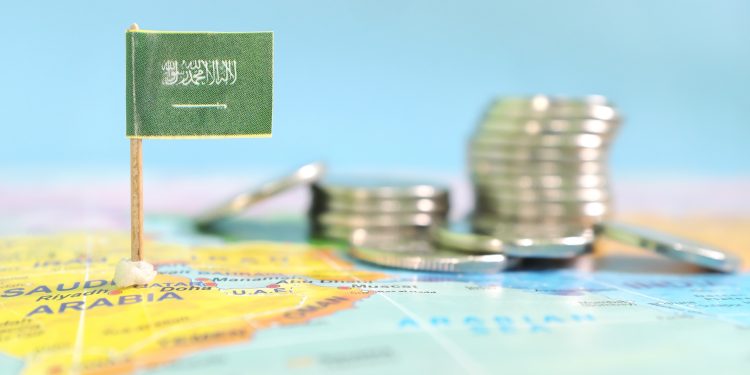Experts in the economic sphere are signaling a bright future for Saudi Arabia’s investment environment, driven by its robust equity and debt markets. Prominent individuals from the kingdom’s sector of the investment bank J.P. Morgan, the financial news service Bloomberg, and Saudi tourism finance entity ASFAR have highlighted the transformative effects of the Vision 2030 plan for economic diversification.
The strategy aims to lessen Saudi Arabia’s economic dependence on oil by nurturing the growth of diverse sectors such as tourism, healthcare, and renewable energy. This approach strives to encourage innovation, generate employment, and elevate the standard of living for citizens.
Amine Fichtali, the principal of investment banking at J.P. Morgan in Saudi Arabia, has observed tangible outcomes from these efforts. Fichtali describes the kingdom as an intriguing and persuasive narrative for investors, spotlighting its top-down, long-term structural transformation supported by socio-economic reforms and global promotional efforts.
Constantin Cotzias, Bloomberg’s European Director, shares a similar perspective, recognizing the kingdom’s evolving regulatory landscape as increasingly appealing to global investors. Cotzias notes that investors seek liquidity, effective governance and regulatory frameworks, and an environment that fosters both supervision and innovation. According to him, Saudi Arabia is successfully navigating this path.
To lure businesses, the kingdom has offered tax incentives and other enticements to firms that relocate their regional headquarters to Riyadh before the conclusion of 2023. As a result, approximately 200 companies, including major players from the US and the UK, have made the transition.
Global tech and pharmaceutical giants also now have their regional bases in Riyadh, a move indicative of the kingdom’s growing business appeal.
Tourism strategy
The tourism industry stands as one of the pillars of Saudi Arabia’s economic shift, bolstered by numerous initiatives to cultivate the sector. By making historical sites accessible, relaxing visa regulations, and showcasing cultural heritage, the kingdom aims to draw international tourists. These efforts are projected to yield significant economic benefits and job creation.
With an ambitious target of welcoming over 30 million pilgrims and 150 million tourists annually by 2030, the kingdom has already surpassed its initial goal of 100 million visitors. Ahmed Al-Khateeb, the Tourism Minister, highlighted the expansion in hotel accommodations and the anticipated growth in the hospitality infrastructure.
The Ministry of Tourism, in partnership with the Ministry of Investment, has launched the Tourism Investment Enablers Program to facilitate business operations and attract investments. This includes the Hospitality Sector Investment Enablers Initiative, which is expected to inject approximately $11.46 billion into the hospitality sector and contribute about $4.29 billion to the GDP by 2030.
ASFAR’s CEO, Fahad bin Mushayt, emphasized the regulatory reforms and the vision to boost tourism’s GDP contribution from 3 percent to 10 percent by 2030.
National industrial program
The kingdom’s industrial sector is contributing significantly to economic diversification through initiatives like the National Industrial Development and Logistics Program (NIDLP), which aims to transform Saudi Arabia into a leading industrial and logistics hub. The program emphasizes enhancing the value of the mining and energy sectors and optimizing the use of local resources.
Bandar Alkhorayef, Minister of Industry and Mineral Resources, reported substantial contributions from the NIDLP to the non-oil GDP and announced significant investments in non-oil exports and private funds. He also revealed record revenues in the mining sector for 2023.
Economic journalist Jamal Banoon stresses the importance of diversifying the industrial base and investing in infrastructure, research, and development. He notes Saudi Arabia’s focus on emerging industries and anticipates more alliances with international firms to advance technology and competitiveness.
Renewable energy drive
Saudi Arabia is actively pursuing renewable energy, aiming for renewables to comprise half of its energy mix by 2030. Projects like NEOM and the Green Riyadh Initiative are at the forefront of creating sustainable, renewable energy-powered environments. Additionally, the kingdom is investing in R&D to spur innovation in renewable energy technologies.
Banoon foresees Saudi Arabia becoming a leader in clean energy, with plans to significantly increase productivity from renewable resources like the Sakaka solar power plant and the Dumat Al-Jandal wind farm.
Healthcare development
The kingdom’s healthcare sector is also a focal point for economic diversification. By investing in healthcare infrastructure and focusing on preventive care, Saudi Arabia aims to enhance service quality, increase accessibility, and drive technological advancement. These efforts are seen as key to attracting foreign investment and talent, thus bolstering long-term economic growth.


